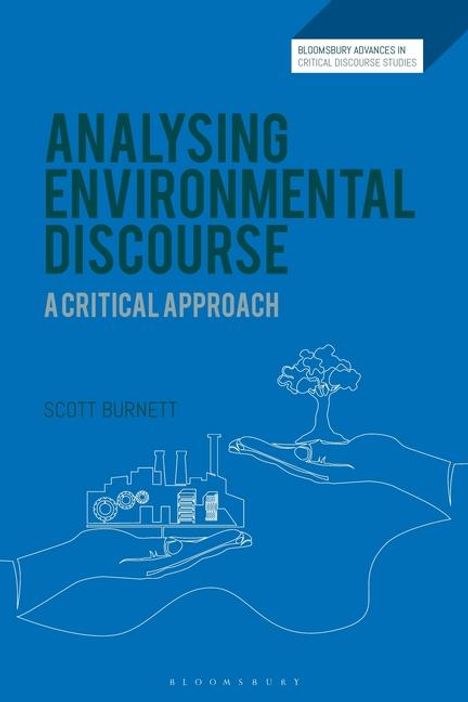Scott Burnett: Analysing Environmental Discourse, Gebunden
Analysing Environmental Discourse
- A Critical Approach
(soweit verfügbar beim Lieferanten)
- Verlag:
- Bloomsbury Academic, 01/2026
- Einband:
- Gebunden
- Sprache:
- Englisch
- ISBN-13:
- 9781350360297
- Artikelnummer:
- 12271084
- Umfang:
- 322 Seiten
- Gewicht:
- 454 g
- Maße:
- 234 x 156 mm
- Stärke:
- 25 mm
- Erscheinungstermin:
- 22.1.2026
- Hinweis
-
Achtung: Artikel ist nicht in deutscher Sprache!
Klappentext
The sheer scale of global ecosystem devastation and the crescendo of the climate crisis may serve as good reasons for scholars and commentators to welcome any social mobilization that tries to save the earth. And yet not all environmentalisms are good environmentalisms. From eco-fascism to greenwashing and neoliberal conservation, not all 'green' action has a positive value. Offering a critical framework for discourse analysts to get to the heart of this specific complexity, this book is a study of the key discursive moves in environmentalist discourses that perpetuate social inequality, putting forward an alternate socioecological approach to avoiding these pitfalls.
While debates over the social visions and implications of environmentalist discourse have been raging for decades, they have yet to receive focused attention within critical discourse studies. This book addresses this gap, building on critiques from feminist, queer, anti-racist, Indigenous, and decolonial scholars across fields such as political ecology, environmental sociology, indigenous studies, human geography, literary theory, environmental communication, and others, in which the tropes, strategies, and structures perpetuated within strands of environmentalism are identified. In doing so, it brings forward new case studies, focused discourse analysis, and a socioecological normative framework to map out discursive formations. Special attention is paid to the whiteness and / or coloniality of ecological futures articulated as utopian social visions, and it is argued that only when combined with a radical vision for social justice are these environmental utopias desirable, attainable, or workable.

